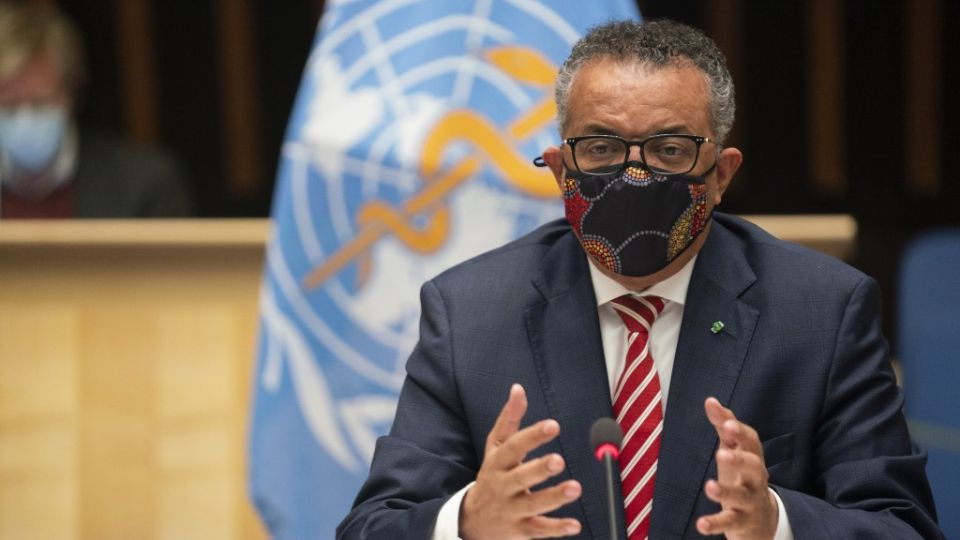September 16, 2022
JAKARTA – With the World Health Organization calling on countries to seize the opportunity to end the COVID-19 pandemic now that global figures have fallen to their lowest point since 2020, health experts are urging the government not to get complacent and enact consistent strategies to ensure the road to endemicity remains smooth and trouble-free.
WHO director general Tedros Adhanom Ghebreyesus announced on Wednesday that the number of newly reported COVID-19 cases had dropped dramatically, saying that the world had “never been in a better position to end the pandemic”.
Newly reported cases of the disease, which has killed millions since being identified in late 2019, last week fell to the lowest level since March 2020, according to the WHO’s latest epidemiological report on COVID-19.
In the first week of September, the WHO recorded some 11,300 weekly deaths globally, a 19 percent decrease from the previous week and roughly half the fatalities recorded during the second week of March 2020 (20,700 deaths).
If the current trend of low hospitalizations and deaths continues, the WHO might revoke the public health emergency of international concern (PHEIC) status for COVID-19 by mid-next year at the latest, epidemiologist Dicky Budiman from Griffith University in Australia said.
That would effectively spell the end of the pandemic, he suggested.
“The continuous decline in hospitalizations and deaths across the globe are strong indicators that we’re on the right track to end the pandemic,” Dicky told The Jakarta Post on Thursday, corroborating the WHO assessment.
He said that although several countries had reported the emergence of new sub-variants or an influx of new reported cases, those two factors had not driven up fatalities and hospitalization.
“It means that all countries, including Indonesia, have carried out proper intervention strategies to control the severity of the outbreak, especially through vaccination and the implementation of health protocols,” he said.
Despite the encouraging news, however, Dicky also warned that there was no 100 percent guarantee that Indonesia would soon reach endemicity – a state in which COVID-19 is treated in the same way as the common cold.
Part of the reason is that there was still a possibility that new and dangerous COVID-19 variants might still emerge in the future and change the course of the pandemic.
“We’re racing against the virus. It’s possible that it could mutate into a variant that effectively evades vaccine protections and is more likely to cause severe symptoms. That’s why we need to remain consistent in implementing health protocols, strengthen surveillance and speed up the vaccine rollout,” he said.
“This is a great moment to sprint toward endemicity and not lower our guard, because we don’t want the virus to outpace us.”
Although mutations are a natural part of a virus’ life cycle, scientists have suggested that curbing the total number of infections could help reduce the speed with which a virus replicates and mutates. In turn, that could lower the odds of mutations advantageous to the virus.
Global efforts
The WHO chief told reporters in a virtual press conference that the end of the pandemic was “in sight”, but only “if all countries, manufacturers, communities and individuals step up and seize this opportunity”.
Since the start of the pandemic, the WHO has tallied more than 605 million cases, and some 6.4 million deaths, although both those numbers are believed to be serious undercounts, AFP reports.
In response, the global health agency published six policy briefs to help countries do what is needed to rein in the virus, which includes prompts such as vaccinating 100 percent of at-risk groups.
In Indonesia, where a trend similar to the latest WHO epidemiological report was observed, the government has promised to stay on its toes in accordance with the WHO’s recommendations, said Mohammad Syahril, a spokesman for the Health Ministry.
“Whether or not we reach endemicity ultimately depends on us. We need to continue strengthening our [mitigation] efforts until the pandemic is over,” Syahril told the Post on Thursday.
“We’ll continue to speed up the vaccine rollout and implement PPKM [public activity restrictions] until the pandemic is over. I urge the public to remain disciplined in following health protocols. We don’t want all of our hard work in the last two years to be in vain,” he added.
National situation
Indonesia’s COVID-19 caseload has largely been declining since the peak of the fourth COVID-19 wave fueled by the spread of the highly contagious Omicron sub-variants in early August.
Epidemiologist Windhu Purnomo from Airlangga University said that the country had been recording an effective reproduction number (Rt) of less than 1 since the end of last month, indicating that the virus outbreak was slowing.
“Our Rt has stood at 0.83 percent since the end of August. Hospitalizations and deaths during the last COVID-19 wave also remain relatively low. If we can maintain this situation for three-four months, we could confidently say that we’re entering an endemic phase, as long as no new variant of concern emerges,” Windhu said.
As of Thursday, Indonesia recorded a total of 30,441 active cases, a 30 percent decrease from the 44,434 cases on Sept. 1.


